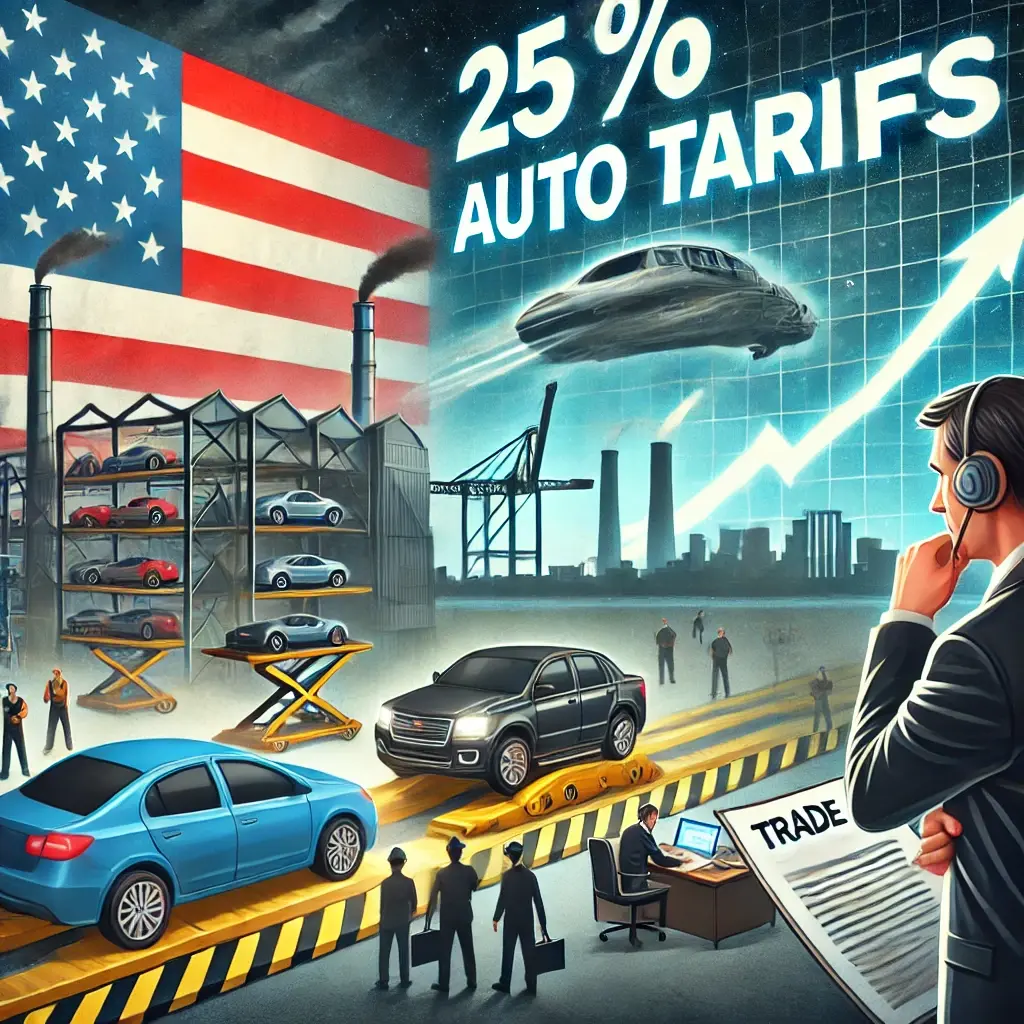
In a major policy move, U.S. President Donald Trump has announced a 25% tariff on all automobiles not manufactured in the United States. This decision is expected to have significant consequences for the global automobile industry, trade relations, and consumers. The tariffs will take effect on April 2, 2025, with collection beginning from April 3.
The move aligns with Trump's broader protectionist trade policies, aimed at boosting domestic manufacturing and reducing dependence on foreign-made products. However, it has also sparked discussions on potential economic repercussions and geopolitical tensions.
Key Highlights of Trump's Auto Tariff Policy
1. 25% Auto Tariff on Foreign Cars
The new policy imposes a flat 25% tariff on all vehicles not made in the U.S.It aims to encourage car manufacturers to relocate production to the U.S. and support local jobs.
2. Permanent Tariffs with No Elon Musk Involvement
Trump clarified that the auto tariffs are permanent and that Tesla CEO Elon Musk did not advise on them.Some analysts believe that Tesla and other U.S.-based manufacturers could benefit from the tariffs.
3. Reciprocal Tariffs on All Countries
The U.S. will also impose reciprocal tariffs on imports from other countries starting April 2.However, Trump assured that these tariffs will be very lenient compared to what other nations charge the U.S.
4. Potential Tariff Reduction for China
Trump hinted at the possibility of a tariff reduction for China in exchange for action on TikTok.This move could be part of broader negotiations regarding the regulation and operation of TikTok in the U.S.
5. Carmakers Already Exploring U.S. Production
Several automakers have started looking for manufacturing sites in the U.S. to avoid the tariffs.The policy is expected to accelerate investments in domestic automobile production.
Impact on the Global and U.S. Auto Industry
For U.S. Consumers
The tariffs may increase car prices, especially for those who prefer imported luxury and electric vehicles.On the positive side, domestic carmakers may gain a competitive advantage, leading to more local job opportunities.
For Foreign Carmakers
Companies like BMW, Toyota, and Volkswagen that rely on U.S. sales may reconsider their global manufacturing strategies.Some automakers may increase prices or shift production to the U.S. to comply with the new tariffs.
For the U.S. Economy
While it may boost domestic production, it could also lead to retaliatory tariffs from other nations.The move may strain U.S.-China relations, especially if trade negotiations over TikTok fail.
Trump’s aggressive tariff strategy is a clear signal of his administration’s commitment to strengthening domestic industries. However, the real impact will depend on how other nations respond and whether automakers adjust their strategies accordingly.
As the new tariffs come into effect, industry leaders and policymakers will closely watch how the global auto market adapts to this bold move.
Disclaimer:
This article is for informational purposes only and does not constitute financial, trade, or investment advice. Readers should conduct their own research before making any decisions based on the information provided.




